The Causes, Diagnoses and Treatments of Bad Breath (Halitosis)
We all dread having bad breath (halitosis), yet it can happen to anyone and affect the quality if your life and relationships. Dr. Sibuti Riro, a practicing Periodontist (gum specialist) at Supreme Smiles Avenue Dental Clinic in Kilimani, Nairobi, looks at the causes of bad breath, how you can get rid of the offending condition and get your life back on track.
Halitosis, commonly known as bad breath, refers to offensive breath odor with intensity
beyond socially acceptable levels. Halitosis, if not managed, can have a significant
impact on a person’s social and professional life leading to complete loss of confidence and self-
esteem.
Part of the problem is knowing that you have bad breath, because it’s typically challenging to pick up on one’s own scent. And family members, close friends and colleagues may feel
uncomfortable telling you.
These three tips can help determine if one has bad breath:
1. Lick the back of your hand, let it dry for 5-10 seconds, then smell it or run a piece of
dental floss between your back teeth and smell the floss.
2. Stand in front of the mirror and stick your tongue out as far as possible. If the very back
of the tongue is whitish, it may be a sign that you have bad breath.
3. ‘Cotton test’; Wipe the top surface of your tongue with a piece of cotton gauze and
smell it.
The best way to truly identify the source of chronic bad breath is visit a dentist for a
professional diagnosis. A dentist can check for gum disease, which the main cause of bad
breath.
Causes of Halitosis (bad breath):
Halitosis is not infectious, but is majorly caused by Sulphur-producing bacteria that normally live
on the surface of the tongue, gums and in the throat. These bacteria break down proteins at a
very high rate and volatile Sulphur compounds (VSC) are released as by products. It is these by
products that are responsible in causing the foul smell that often emanates from one’s mouth.
Dental diseases such as periodontitis (infection around the teeth), dental decay or poor oral
Hygiene favors the growth of Sulphur-producing bacteria that break down proteins in our
mouth producing the smelly VSC.
Periodontal disease
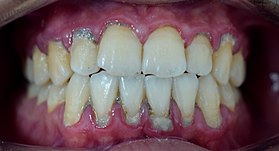
Dental decay/dental caries
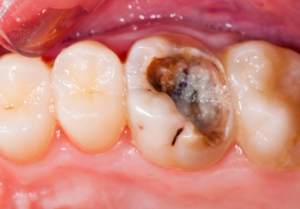
Dry mouth – caused by medicines, alcohol, stress or a medical condition
Smoking – Which starves the mouth of oxygen?
Treatment and Management of Halitosis
Effective management and treatment requires a comprehensive approach that addresses the
underlying causes. This involves a careful identification of the possible cause of bad breath, and can effectively be done by a dentist with further training in the field of periodontology
(gum specialist).
However, most people can reduce or eliminate bad breath by committing to the basics of good
dental hygiene.
Visit a dentist at least twice a year.
The tips below can help prevent bad breath
1. Effective tooth brushing
Brush twice a day at a 45-degree angle to your gums. It is recommended that one brushes their
teeth at least twice in a day for two minutes. Aspire to reach each and every surface of each
tooth.
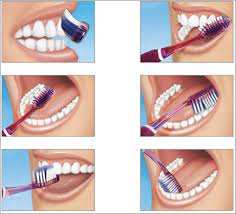
2. Dental flossing
Floss regularly, at least once a day. Tooth brushing alone, may not be effective for the cleaning
in between surfaces of the teeth. That is why dentists recommend flossing daily. Dental floss,
aid in removing trapped food particles and bacteria between the teeth.
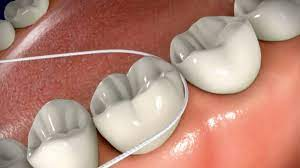
3. Tongue cleaning
Tongue scrapers have been produced in recent years. The tongue should be brushed in a
gentle but thorough manner, from the back towards the front of the tongue, keeping in
mind that the hardest to reach back portion smells the worst.
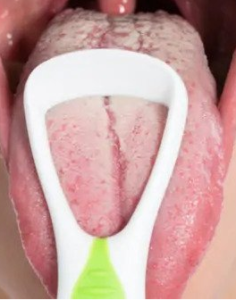
4. A visit to the dentist
It is always the best idea to visit a dentist whenever one feels like they have bad breath or
have received complaints from colleagues and friends. The dentist will identify the cause
and develop a treatment plan that will aid in resolving the problem. For bad breath, one
may need deep scaling (Subgingival scaling and root planning) and polishing a procedure
that is best done by a gum specialist.
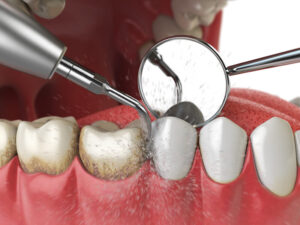
5. There are certain foods that trigger bad breath (onions, fish, garlic). Consider avoiding or
reduce your intake of these foods
Remember:
Halitosis is caused by Sulphur-producing bacteria in the tongue, gums and throat.
The treatment of halitosis will depend on the underlying cause.
To book an appointment with Dr. Sibuti Riro, call or WhatsApp +254 721 568 972
